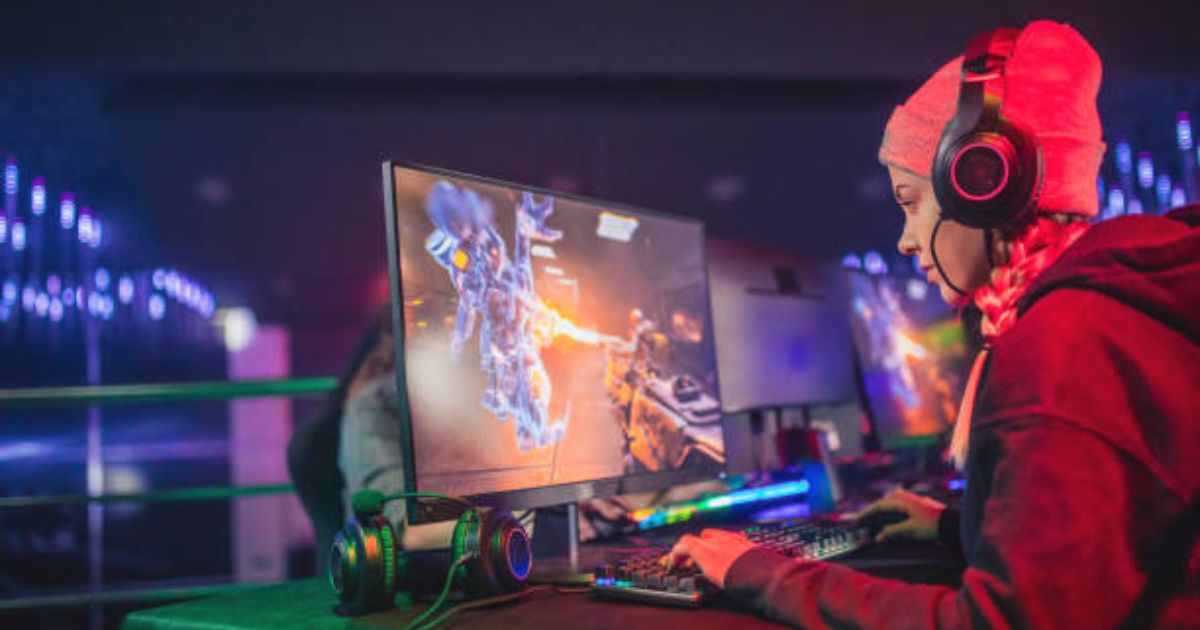In today’s digital age, online gaming has become a popular pastime for millions of people around the world. Gamers are continually seeking the best internet connections to ensure smooth gameplay, and one of the key factors is internet speed. But is 50 Mbps fast enough for gaming? In this blog post, we’ll delve into the world of online gaming, exploring the different types of gaming, speed requirements, and other crucial factors to provide a comprehensive answer to this question.
What Can You Do with 50 Mbps? Is 50 Mbps Fast Enough?

Compared to the lightning-fast Gigabit speeds available today, 50 Mbps may not sound particularly impressive. However, it’s essential to consider that many people still don’t have access to speeds higher than 50 Mbps. According to the FCC, over 20 million people lack access to speeds exceeding 50 Mbps, and more than 120 million people used the internet at speeds slower than 25 Mbps in 2020. Therefore, for a significant portion of the population, 50 Mbps represents a reasonably fast internet connection.
But the real question is whether 50 Mbps can meet your specific needs. According to FCC recommendations and various service speed requirements, even the most demanding online activities, such as 4K video streaming, telecommuting, and studying from home, don’t require more than 25 Mbps per device. If you have multiple devices connected to your Wi-Fi, you can calculate the speed you need for your household based on the number of devices and their internet use.
With 50 Mbps, you can perform a wide range of online activities on one or two devices. However, if you have multiple devices engaging in demanding activities simultaneously, 50 Mbps may not be sufficient.
Required/Recommended Speeds for Online Gaming
Online gaming can be categorized into two types: traditional gaming and cloud gaming. Let’s explore the speed requirements for both.
Is 50 Mbps Fast Enough for Traditional Gaming?
Traditional gaming involves downloading and installing the game on your local device, connecting to the game server, and processing the game on your PC. The amount of data exchanged with the server is relatively small, which results in low requirements. Most games typically require a 3 Mbps download, with online multiplayer games needing up to 4 Mbps. Additionally, 0.5-1 Mbps upload speed is necessary for both.
Gaming consoles like Xbox, PS4/PS5, and Nintendo Switch also require up to 3 Mbps download. Therefore, with a 50 Mbps download speed (along with 5-50 Mbps upload, depending on your connection technology), you should be able to play any online game. In other words, 50 Mbps is more than sufficient for traditional gaming.
Is 50 Mbps Fast Enough for Cloud Gaming?
Cloud gaming has gained popularity in recent years, thanks to advancements in internet speeds and technologies. With cloud gaming, games are hosted on remote servers, eliminating the need for powerful local hardware. The game is rendered on the server, and the video is streamed to your device, akin to services like Netflix.
However, cloud gaming demands higher download speeds than traditional gaming due to the continuous video streaming. The specific requirements vary based on the platform and video quality. For instance, you may need 10-15 Mbps for 720p/30fps, up to 30 Mbps for 1080p/30fps, and often more than 45-50 Mbps for 4K streaming. It’s essential to note that 4K streaming is only available on certain platforms, such as Google Stadia, and often requires a premium subscription.
In summary, 50 Mbps should be adequate for cloud gaming in 720p and 1080p. However, the minimum requirements for 4K cloud gaming vary by service and are rarely sufficient in practice.
Game Streaming and Its Speed Requirements
If you plan to stream your gameplay on platforms like Twitch while playing, you’ll need good upload speed. Streaming at 1080p/60fps requires a minimum upload speed of 6 Mbps, while 720p/30fps needs at least 3 Mbps. To simultaneously stream and play, you should allocate additional bandwidth for the stream, ensuring a smooth experience.
Other Crucial Factors for a Good Gaming Experience

While a 50 Mbps internet connection can cater to most gaming needs, several other factors can influence your overall gaming experience. These include:
1. Latency (Ping)
Latency, often referred to as ping, is a critical aspect of online gaming. It measures the time it takes for data packets to travel between your PC and the game server. Low latency is vital for smooth and responsive gameplay. Ideally, your latency should be below 20ms or 10ms for an excellent experience. Latency above 60ms is generally considered acceptable, while values exceeding 200ms can severely hinder your gaming experience.
The type of internet connection technology you use can significantly affect latency. Fiber connections typically offer the lowest latency, while satellite internet tends to have the highest, making it unsuitable for gaming.
The distance between your PC and the game server also influences latency, as shorter distances result in lower ping times.
2. Jitter
Jitter is closely related to latency and measures fluctuations in your latency over time. Consistent latency produces low jitter, while inconsistent latency leads to high jitter. High jitter can result in issues such as game freezing and screen flickering. The quality of your internet connection, with fiber being the most stable, affects jitter. Cable and DSL connections offer decent performance, but they may experience issues during peak hours.
Acceptable jitter levels are typically below 30ms. Higher fluctuations in latency can lead to noticeable issues in your gaming experience.
3. Packet Loss
Packet loss occurs when data packets fail to reach their destination, which can disrupt your gameplay. Network congestion is a common cause of packet loss, particularly when there is insufficient bandwidth. Outdated or malfunctioning network hardware, software issues like bugs and viruses, and other factors can also contribute to packet loss.
For a seamless gaming experience, your packet loss should ideally be below 1%, with 0% being the best scenario. Packet loss above 1% is likely to be noticeable and can negatively impact your gaming.
Improving Your Gaming Experience
To optimize your gaming experience, consider the following suggestions:
- Choose Fiber: If possible, opt for a fiber internet connection as it provides consistent speeds, low latency, and minimal packet loss.
- Use a Wired Connection: A wired connection is preferable over Wi-Fi as it offers more consistent performance, lower latency, and reduced packet loss. If Wi-Fi is necessary, use a 5 GHz band for better performance.
- Direct Connection to the Router: Avoid using extenders and repeaters, as they can increase latency and reduce bandwidth. Connect your gaming device directly to the router or gateway for the best experience.
- Select the Closest Game Server: Choosing a game server closer to your location can lower latency and improve your overall gaming experience.
- Regular Equipment Restart: Restart your router, modem, and PC to eliminate bugs, IP address conflicts, and clear cache memory. PC restarts can help close unnecessary programs that consume resources.
- Internet Connection Optimization: Manage bandwidth by pausing downloads and stopping background programs that use the internet. Adjust Ethernet and Wi-Fi adapter settings to improve latency and jitter.
- Keep Drivers and Firmware Up to Date: Regularly update your network drivers and firmware, as some updates may positively impact network performance.
- QoS Prioritization: Use Quality of Service (QoS) settings on your router to prioritize gaming traffic, reducing packet loss and lowering latency.
- Avoid Peak Hours (Cable Internet Users): If you have cable internet, be aware of network congestion during peak hours and plan your gaming sessions accordingly.
Related Article:
FAQ
How fast is 50 Mbps?
While it may not be the fastest internet speed available, 50 Mbps is decent for most online activities. It can handle demanding tasks like 4K streaming and cloud gaming. Keep in mind that it’s suitable for one or two devices but may not be ideal for a whole household.
Is 50 Mbps good for Fortnite?
Yes, 50 Mbps is more than sufficient for playing Fortnite. The game’s minimum requirements are relatively low, typically 3-4 Mbps download and 0.5-1 Mbps upload.
Is 50 Mbps good for PS4?
Yes, 50 Mbps is more than enough for the PS4, as it has minimal requirements for gaming. According to official recommendations, you need at least 2 Mbps. Higher speeds may be required for streaming services like PlayStation Now, which recommend 5 Mbps for 720p and 15 Mbps for 1080p streaming.
What is a good internet speed for gaming?
The minimum required speeds for traditional gaming are 3-4 Mbps for download and 0.5-1 Mbps for upload, with a recommended minimum of 20 Mbps. Cloud gaming has higher requirements, with 5-30 Mbps needed for various platforms and video qualities. Services supporting 4K streaming often require 45+ Mbps.
Is 50 Mbps fast enough for gaming on two devices simultaneously?
For traditional gaming, yes, 50 Mbps should suffice for two devices. However, other factors, such as latency and jitter, may affect your experience when gaming on multiple devices at the same time. For cloud gaming, playing in 720p should be manageable, but 1080p may be challenging. 4K cloud gaming on two devices simultaneously is generally not feasible with 50 Mbps.
How long will it take to download a game from Steam with a 50 Mbps connection?
The download time depends on the game’s size and bandwidth usage on your network. Under ideal conditions with no other network traffic, downloading a 25 GB game would take approximately 1 hour and 11 minutes, a 50 GB game about 2 hours and 23 minutes, and a 75 GB game roughly 3 hours and 34 minutes. Larger games like GTA V (72 GB) would take at least 3 hours and 26 minutes to download. Sharing bandwidth with other users can extend these estimated download times.
Conclusion:
In conclusion, a 50 Mbps internet connection is generally suitable for gaming, whether you’re into traditional or cloud gaming. However, it’s essential to consider factors such as latency, jitter, and packet loss, as these can significantly impact your gaming experience. If these parameters are too high, your gaming experience may suffer, regardless of your internet speed.
